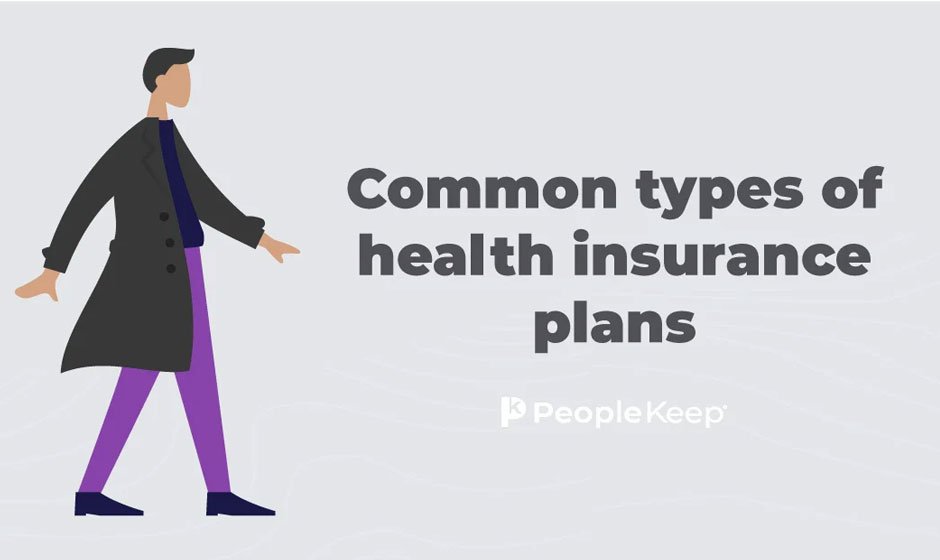Health insurance constitutes a fundamental component of upholding one’s overall health and ensuring the availability of essential medical services. While delving into health insurance alternatives, individuals frequently encounter an array of plans to consider. These plans can exhibit notable coverage scope, expenses, and adaptability disparities. We will compare distinct categories of health insurance plans to facilitate a well-informed choice regarding the most fitting option for your requirements.
Types of health insurance
1. Health Maintenance Organization(HMO):
HMO plans offer a network of healthcare providers, including doctors, specialists, and hospitals. They require members to choose a primary care physician(PCP) who acts as a gatekeeper for all healthcare services. In most cases, referrals from the PCP are needed to see specialists. HMPs often have lower monthly premiums and out-of-pocket costs, making them an economical choice. The trade-off is a more limited choice of healthcare providers and less flexibility in seeking care outside the network.
2. Preferred Provider Organization(PPO):
PPO plans provide a broader network of healthcare providers and offer more flexibility when it comes to choosing doctors and specialists. Members are not required to choose a primary care physician and can see specialists without referrals. While PPOs have higher monthly premiums and co-payments compared to HMOs, they allow individuals to see out-of-network providers, although at a higher cost. This type of plan is suitable for those who value a balance between flexibility and cost.
3. Exclusive Provider Organization(EPO):
EPO plans share similarities with both HMOs and PPOs. Like HMOs, they typically require members to choose a primary care physician and need referrals for specialist care. However, EPOs like PPOs, offer coverage for out-of-network services in emergencies. Monthly premiums may fall between HMOs and PPOs, making EPOs a choice for those who want some flexibility while controlling costs.
4. Point of Service(POS):
POS plans to combine features of HMOs and PPOs. Members choose a primary care physician and need referrals for specialists, as with an HMO. However, like PPO, they have the option to see out-of-network providers, albeit at a higher cost. POS plans tend to have moderate monthly premiums and offer a moderate level of flexibility in provider choice.
5. Catastrophic Health Insurance:
Catastrophic plans are designed for young, healthy individuals who want to protect themselves from major medical expenses in case of emergencies. These plans have very low monthly premiums but high deductibles. They cover elemental health benefits after the deductible is met. Catastrophic plans are not recommended for those who require regular medical care, as the out-of-pocket costs can be substantial.
For more information on finding the right health insurance plan for your needs, explore options at www.medicareadvantageplans2024.org
Benefits of health insurance plan
Health insurance plans offer a wide range of benefits that contribute to the overall well-being and financial security of individuals and families.
1. Access to Quality Healthcare:
One of the most elemental benefits of health insurance plans is the access they provide to quality healthcare services. With a health insurance policy in place, individuals can seek medical attention without the worry of hefty expenses. Regular check-ups, preventive screenings, vaccinations, and necessary medical treatments become easily accessible, ensuring that individuals can maintain their health and well-being.
2. Mental Health Support:
Recognizing the importance of mental health, many health insurance plans now offer coverage for mental health services, including therapy and counseling. This coverage is elemental in addressing the growing concerns related to stress, anxiety, depression, and other mental health issues.
3. Maternity and Newborn Care:
For families planning to expand, health insurance plans often involve coverage for maternity care, comprising prenatal visits, labor and delivery, and postnatal care. Newborns are typically covered from birth, assuring them with immediate access to healthcare services.
How to find a reliable health insurance plan?
Here are some steps to help you find a reliable health insurance plan:
1. Assessing Your Needs:
Begin by conducting an assessment of your healthcare requirements as well as those of your family members. Take into account elements such as your medical background, any ongoing health conditions, prescribed medications, and how often you typically visit the doctor. This evaluation will assist you in ascertaining the specific kind of coverage that aligns with your needs.
2. Research Different Types of Plans:
There are various types of health insurance plans available, comprising Health Maintenance Organization(HMO), Preferred Provider Organization(PPO), Exclusive Provider Organization(EPO), and Point of Service(POS) plans. Research each type to understand how they work, their network of providers, and their coverage options.
3. Compare Coverage and Costs:
Once you understand your requirements and the types of plans available, compare the coverage and costs of different plans. Look at deductibles, co-payments, co-insurance, out-of-pocket maximums, and premiums. Consider how these factors align with your budget and anticipated healthcare usage.
4. Research and Insurance Company:
Look into the reputation and financial stability of the insurance company offering the plan. Mediagap coverage is worth considering. You can research customer reviews, ratings from independent agencies, and the company’s history of handling claims and providing customer service.

